The summer workshop in '81 offered me the opportunity I'd been waiting for. I asked Fay and Mike if I could try doing the sound. "Sure," they said. So I wasn't the only one who said that. Mike and Read gave me a tutorial about the sound system: two reel-to-reel tape decks, a turntable, a fancy cassette deck, and a ridiculously complex patch panel. Nothing was marked on the panel. They had built it, so they both knew it well. My first contribution to sound: I brought in my DYMO label maker and marked everything. I learned the number designations and locations of the microphone inputs around the stage and the speaker outputs positioned here and there. I recorded music and other cues, and generally took care of the sound needs of the workshop shows. Mike was happy to have a break from it. In fact, when they saw how well I did, they asked me if I'd be willing to handle sound for the whole season. Don't fling me in that briar patch, Bre'er Fox!
Ken Zinck, the guy who'd beaten me out for the role of Dr. Lyman, put together a summer show called The World of Carl Sandburg which required some creative sound construction, including a sledge hammer hitting a spike at the precise instant the pantomime hammer hit the imaginary spike (I performed it live from the sound booth with a hammer, crowbar and microphone) and clicking noises as if all three people on stage were mechanical toys (I clicked a key back and forth on the keyring, recording it three times and overlapping them. He was happy with what I did. I was in the groove.
The first Guild show was Three Men on a Horse, which takes place in the 1920s. My first job was to find lots of period music for pre-show and scene changes. I went to the library, and not surprisingly for a Florida retirement community, found much more than I needed. This was good, because all of the set changes took way too long. One night they dropped a wall, which fell out through the curtain toward the audience. That night I used nearly all of the music I had. The other job I had was as the race announcer on the radio, which I prerecorded and played as a regular sound cue.
Cactus Flower was next, mostly taking place in a dentist's office. I had a bunch of stuff for this one. There was an elevator sound complete with rolling door opening and closing. There was a door chime. There was music. I was happy to suggest selections from my extensive Chuck Mangione collection. The director liked it. The door chime has a story attached to it. One of Emerson Art Service's clients was days away from getting married when her fiance crashed his small plane and died. Just a couple of days later she came by the studio to pick up a job we'd done for her. She had a brave face on, but when I expressed my condolences, she dissolved into tears. I offered her a hug and she took it gratefully. She composed herself, and asked if I was doing okay. "Sure," I said (again) "except for the show I'm working on. I need a door chime, and I'm having a hard time finding one," "Well," she said, "my father works for the phone company. I'm sure he can let you borrow one, if you return it in good shape." She called him, I Artmobiled over, and that night we had a real chime controlled by the phone button at the stage manager's station. Perfect.
It was somewhere in here that I hopped on the Artmobile in a tank top, shorts and flip flops for a long day's work at the theatre. It was eighty something degrees when I left the apartment that Sunday morning in December. The next time I walked outside, pretty late that night, it was in the upper forties. A cold front had blown through. Damn! It was a miserable cold ride home, and I was looking forward to my nice warm apartment. When I got home, I found that I had left all of my windows wide open! The furnace had been blasting away for hours, and the house was as cold inside as out. Note to self...
Now we come to my first Genie Award. It didn't specify On Golden Pond as the reason for the "Excellence in Sound" award, but OGP was obviously my best work, starting with pre-show and entre-act music. Director Ken Zinck tried to describe to me what he wanted for music, and he wanted loon calls ghosted in at odd intervals. My wildlife artist/ former National Geographic employee dad had a recording of bird calls that came with his "Birds of North America" book, and, yes, it had a wide variety of loon calls on it, so they wouldn't get monotonous. I made a reel-to-reel recording of them so that I could interject one whenever it felt right. Music? Something that carried the ambiance of Golden Pond. Bill Green, who was cast as the mail boat guy, had about a hundred beautiful slides of Maine pond scenes, adjacent landscapes and local flora and fauna shots. The music would be playing while the slides were shone on the pull-down screen in front of the grand drape. I set out to find the perfect music. Sparse, mellow, slightly melancholy, melodic, and of long duration. Hmmm. There was nothing in my collection. I was going through the library collection little by little with no luck. Then, one Sunday, before rehearsal, the same Bill Green was doing what he usually did - he was noodling around on the piano. It was sparse, mellow, slightly melancholy, and melodic. Hmmm. "Whatcha playing there, Bill?" I asked. "Nothing, really," he replied, "just playing what I feel." He must have had Golden Pond on the brain, because it was perfect. I asked him if he'd be willing to noodle for a good long stretch while I recorded it for pre-show. "Sure!" he said. I'm guessing that Bill Green felt just amazingly good about his contributions to this excellent show. Anyway, I cabled up every kind of microphone in the arsenal and miked the piano from inside, outside, on top, underneath, in front and behind. We arranged a long stretch of time when all would be quiet backstage, and he commenced noodling. I tuned in the richest sound I could muster from the available technology. I must confess, it was wondrously rich - you could see deep reds, purples and blues in that recording. It went on for about a half hour before I called out to Bill to stop. I rewound it and played it over the house speakers. I had loons cued up on the other deck, and began tossing one in here and there. At one point I stood up and looked out to the stage. Ken Zinck was standing there with tears pouring down his face. "You're an artist, my friend," he said. The rest of the sound cues were fairly cut and dried - the mail boat arriving several times, cutting the engines on cue; a thunder storm; loon calls. Easy stuff. Excellence in sound.
Ever so often a show comes along that just isn't very good. The next show, The Chase, was one of those unfortunates. The main character, the sheriff, was played by a newcomer, who looked the part, but just wasn't very good. To be honest, the show just sucked. My greatest regret was that when Terry of The Dodgers asked me about it, I couldn't bring myself to admit that it sucked. He and his wife went to see it, and he never really trusted my critical judgment again. There was one good thing about it, though. The music was excellent, and it was original. My good friend Craig, the best guitarist I know, watched a rehearsal, came up to the sound booth and poured forth some excellent slide guitar pre-show and curtain call music. I guess, in my mind, the music was enough to make the show. Terry didn't agree.
I asked Mike if he'd be willing to do South Pacific while I auditioned for the last show, You Can't Take It With You, which he did. I poured my heart into Kolenkhov, and got the part. Strangely enough, after South Pacific, Mike handed sound back to me and I ended up rehearsing my role and putting together sound cues at the same time. I had to find someone to run the cues, though. I was fast, but not fast enough to do that 6th grade Santa Claus thing with the sound booth so far away. To add to the situation, the splicing tape I bought was defective and wouldn't hold. The poor guy (Damn, I don't remember who the poor schmuck was!) had never run sound before, and he was retaping all of the splices on the fly. Builds character. Yeah! Anyway, now I've played DePinna and Kolenkhov. Next time I'm going to play Grandpa. I'd be an excellent Grandpa. Unless I'm too old by then.
So that's Vero Beach Theatre Guild season two. I know that there were more stories, but I don't remember them. During the summer I participated in the Children's Summer Workshop, taking a youngun under my wing and showing him the basics of theatrical sound. Before the next season began, my buddy Craig asked me to help him out: he was joining a band that really wasn't as good as he was used to. He wanted me to be in control of the sound out front so that vocals and instrumental solos wouldn't just be lost in the muddy noise. Next chapter.
Tuesday, March 9, 2010
Subscribe to:
Post Comments (Atom)








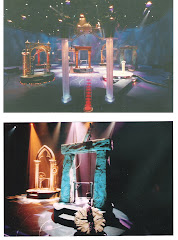
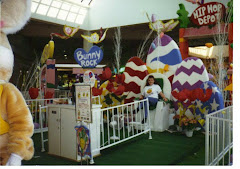
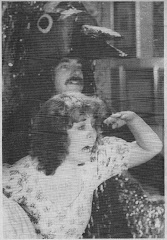
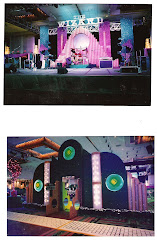
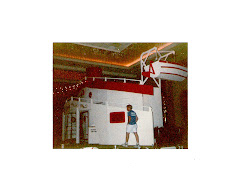
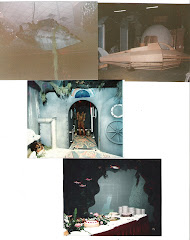

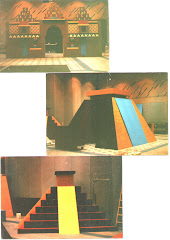
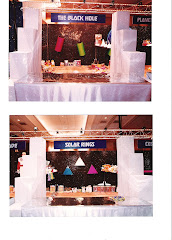
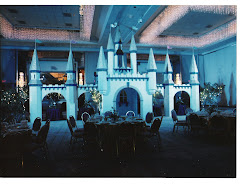
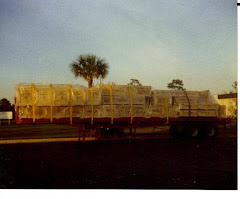

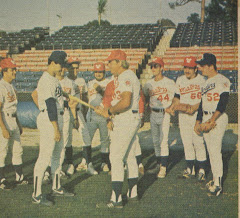
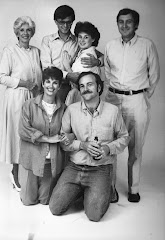
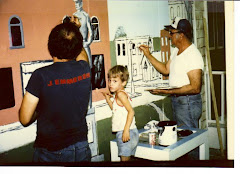
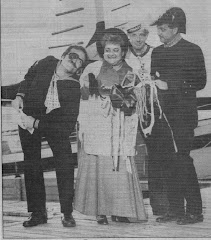
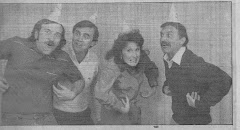
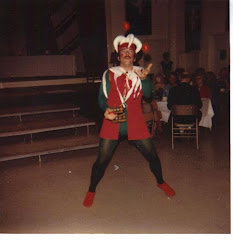
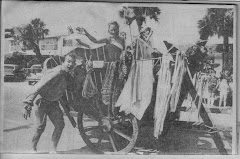
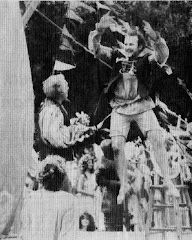
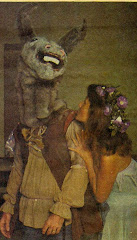


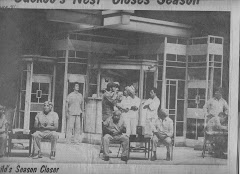

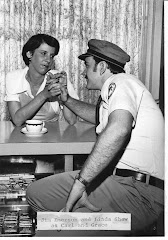
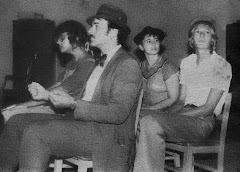



No comments:
Post a Comment